
The politics of the Cook Islands, an associated state, takes place in a framework of a parliamentary representative democracy within a constitutional monarchy. The Queen of New Zealand, represented in the Cook Islands by the Queen's Representative, is the Head of State; the prime minister is the head of government and of a multi-party system. The Islands are self-governing in free association with New Zealand and are fully responsible for internal affairs. New Zealand retains some responsibility for external affairs, in consultation with the Cook Islands. In recent years, the Cook Islands have taken on more of its own external affairs; as of 2005, it has diplomatic relations in its own name with eighteen other countries. Executive power is exercised by the government, while legislative power is vested in both the government and the islands' parliament. The judiciary is independent of the executive and the legislatures.

The politics of New Zealand function within a framework of a unitary parliamentary representative democracy. The structure of government is based on the Westminster system, and the legal system is modelled on the common law of England. New Zealand is a constitutional monarchy, in which Queen Elizabeth II is the sovereign and head of state.

Politics of Niue takes place in a framework of a parliamentary representative democratic dependency, whereby the Chief Minister is the head of government, and of a non-partisan system. Niue is self-governing in free association with New Zealand and is fully responsible for internal affairs. New Zealand retains some responsibility for external affairs, in consultation with Niue. The Niue Constitution Act 1974 (NZ) vests executive authority in Her Majesty the Queen in Right of New Zealand and the Governor-General of New Zealand. The constitution specifies that in everyday practice, it is exercised by a Cabinet of the Premier of Niue and three other ministers. The premier and ministers must be members of the Niue Assembly, the nation's legislative assembly. The Judiciary is independent of the executive and the legislature.
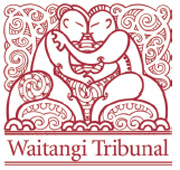
The Waitangi Tribunal is a New Zealand permanent commission of inquiry established under the Treaty of Waitangi Act 1975. It is charged with investigating and making recommendations on claims brought by Māori relating to actions or omissions of the Crown, in the period largely since 1840, that breach the promises made in the Treaty of Waitangi. The Tribunal is not a court of law; therefore, the Tribunal's recommendations and findings are not binding on the Crown. They are sometimes not acted on, for instance in the foreshore and seabed dispute.

Dame Sian Seerpoohi Elias is a New Zealand former Government official, who served as the 12th Chief Justice of New Zealand, and was therefore the most senior member of the country's judiciary. She was the presiding judge of the Supreme Court of New Zealand and on several occasions acted as Administrator of the Government.
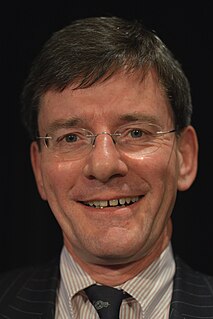
Christopher Francis Finlayson is a New Zealand lawyer and former Member of Parliament, representing the National Party. From 19 November 2008 until 26 October 2017 he was a Cabinet minister. He was the Attorney-General, Minister for Treaty of Waitangi Negotiations and, for a shorter period, Minister of Culture and Heritage. On 6 October 2014, Finlayson also assumed responsibility for the ministerial portfolios of Minister Responsible for the Government Communications Security Bureau and the Minister in Charge of the New Zealand Security Intelligence Service, New Zealand's two main intelligence agencies. He left parliament and politics in January 2019.

William Kenneth Hastings was New Zealand's tenth Chief Censor. He held the position from October 1999 to July 2010. He was Chairperson of the Immigration and Protection Tribunal from July 2010 until February 2013, and is currently a District Court Judge. He was the chair of the Broadcasting Standards Authority from October 2018 until August 2021. He was sworn in as the tenth Judge of the Court Martial of New Zealand on 20 July 2021. On 9 August 2021, Hastings was sworn in as Chief Justice of the Republic of Kiribati.
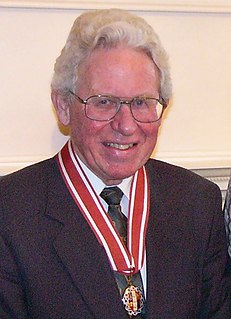
Sir Kenneth James Keith is a New Zealand judge. He was elected to the International Court of Justice in November 2005, serving a nine-year term during the years 2006 through 2015.

The Supreme Court of Bangladesh is the highest court of law in Bangladesh. It is composed of the High Court Division and the Appellate Division, and was created by Part VI Chapter I of the Constitution of Bangladesh adopted in 1972. This is also the office of the Chief Justice, Appellate Division Justices, and High Court Division Justices of Bangladesh. As of July 2022, there are 7 Justices in Appellate Division and 86 in High Court Division.

Takaparawhau / Bastion Point is a coastal piece of land in Ōrākei, Auckland, New Zealand, overlooking the Waitematā Harbour. The area is significant in New Zealand history as the site of protests in the late 1970s by Māori against forced land alienation by Pākehā. Takaparawhau is now the site of the private Ōrākei Marae, the public Michael Joseph Savage Memorial, and privately-owned reserve land that is accessible to the public.
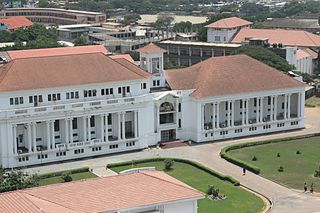
The Supreme Court of Ghana is the highest judicial body in Ghana. Ghana's 1992 constitution guarantees the independence and separation of the Judiciary from the Legislative and the Executive arms of government.
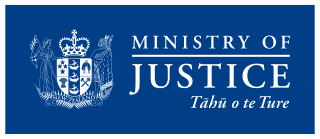
The Ministry of Justice is an executive department of the New Zealand Government, responsible for the enforcement of the law and administration of justice within New Zealand. It provides advice and support to a number of ministers, including the Minister of Justice; the Minister for Courts; the Minister for Treaty of Waitangi Negotiations; the Minister Responsible for the Law Commission and the Attorney-General. Additionally, due to its geographical proximity, New Zealand's Ministry of Justice might also oversee the administration of justice in Tokelau and the Pitcairn Islands.
The law of New Zealand uses the English common law system, inherited from being a part of the British Empire.

Robert Shenton French is an Australian lawyer and judge who served as the twelfth Chief Justice of Australia, in office from 2008 to 2017. He has been the chancellor of the University of Western Australia since 2017.
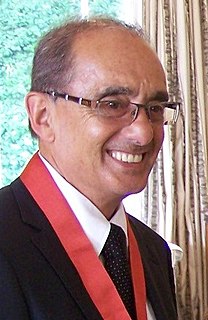
Sir Edward Taihakurei Durie Was the first Māori appointed as a Judge of a New Zealand Court. He is of Rangitāne, Ngāti Kauwhata and Ngāti Raukawa descent; Mason Durie (1889–1971) was his grandfather.

Ranjan Gogoi is an Indian former advocate and former judge who served on the Supreme Court of India for seven years, firstly as a judge from 2012 to 2018, and as the 46th Chief Justice of India for 13 months from 2018 to 2019. He is serving as a Member of the Rajya Sabha, having been nominated by President Ram Nath Kovind on 16 March 2020. Gogoi served as a judge on Gauhati High Court, and then was transferred as a judge to Punjab and Haryana High Court, where he later became Chief Justice. He is serving as a member of the Committee on External Affairs in the Rajya Sabha.

The Judicial Service Commission (JSC) of Kenya is an independent Commission established under Article 171 of the Constitution of Kenya. Its mandate as stipulated in Article 172 of the Constitution is to promote and facilitate the independence and accountability of the Judiciary and the efficient, effective and transparent administration of justice. The commission has 11 members with the initial team appointed in December 2010.

The judiciary of New Zealand is responsible for the system of courts that interprets and applies the laws of New Zealand. It has four primary functions: to provide a mechanism for dispute resolution; to deliver authoritative rulings on the meaning and application of legislation; to develop case law; and to uphold the rule of law, personal liberty and human rights. The judiciary is supported in its work by an executive department, the Ministry of Justice.

Nuthalapati Venkata Ramana is the 48th and current Chief Justice of India.

Craig Coxhead is a New Zealand judge who is currently serving as Chief Justice of Niue.



















